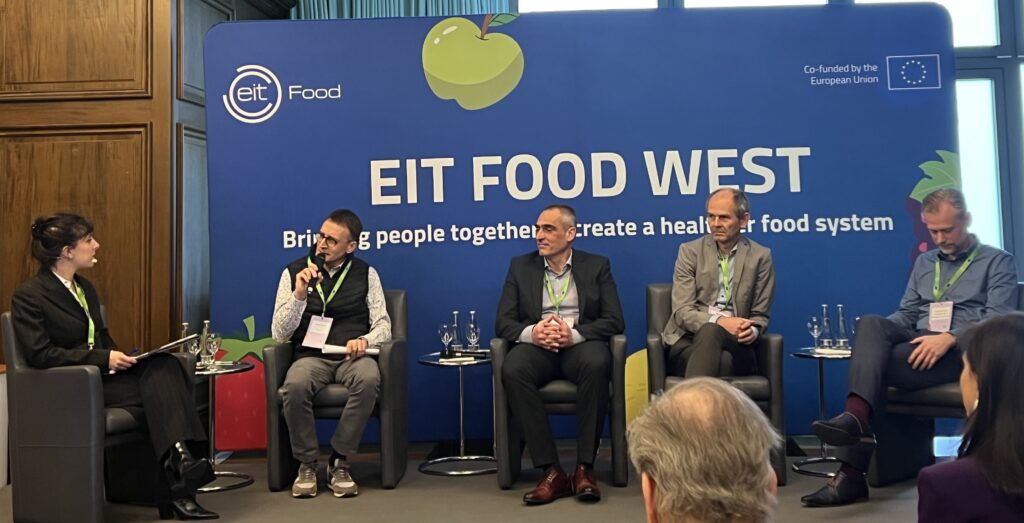
The agri-food industry is facing unprecedented challenges: population growth, climate change, pressure on natural resources… However, a major opportunity is emerging on the horizon: biotechnology. By 2040, this discipline could become the primary driver of innovation in the agri-food sector, offering more sustainable, efficient solutions that meet consumer demands. At a recent event dedicated to innovations in agri-food biotechnology, Wagralim and Flanders’ Food had the opportunity to actively participate in discussions. These meetings allowed their representatives to interact with companies, startups, and investors, exchange ideas about the Biotech4Food project, and discuss the challenges faced by companies in the sector. These moments of exchange are crucial for strengthening collaborations and identifying future development opportunities.
Why is Biotechnology Key for the Future of Food?
According to estimates, biotechnology could impact up to 40% of food products by 2030. This potential is based on several key advantages:
- A more sustainable approach: biotechnology enables the valorization of agricultural by-products, reduces energy and water consumption, and integrates agriculture into a circular bioeconomy model.
- Breakthrough innovations: from precision fermentation to plant biotechnology, these technologies offer promising alternatives, such as the production of cocoa without cultivating cocoa trees.
- A competitiveness lever: by simplifying processes and reducing production costs, biotechnology can make food more accessible and attractive in the market.
Europe, a Leader in Biotech Innovation?
The European Union has identified biotechnology as one of the four critical technologies of the future. Several strategic initiatives have been put in place to support its development:
- EU Biotech Alliance
- Horizon Europe (10 billion euros allocated to research)
- EU Agri-Food Biotech Alliance
Europe has a dynamic ecosystem, combining startups, research, and industry, to drive this food revolution. However, it is essential to transform these innovations into mass-market solutions, not just niche technologies.
What Obstacles Need to be Overcome?
Despite its potential, the adoption of biotechnology still faces several hurdles:
- Consumer acceptance: food biotechnology can seem “unnatural.” Informing and educating the public is crucial.
- Regulation: creating a clear and adapted legal framework is essential to accelerate the integration of innovations into the market.
- Changing eating habits: the adoption of new products is a long process. A new generation of consumers open to these innovations needs to be mobilized.
EIT Food: A Key Player for the Future of Agri-Food Biotechnology
EIT Food, Europe’s largest agri-food innovation ecosystem, plays a fundamental role in this transformation. By coordinating a public-private partnership (PPP), it contributes to:
- Facilitating collaboration between startups, researchers, and industry players
- Accelerating the development of biotech solutions
- Working on regulation and public acceptance
A Key Event for the Biotech4Food Ecosystem
Conclusion: A Unique Opportunity to Seize
We are at a pivotal moment. Biotechnology can not only reinvent the way we produce and consume food but also address major environmental and economic challenges.
At Biotech4Food, we believe in a collaborative approach to integrate these innovations in a sustainable and widely accepted manner. The time has come to act, together, to build a more resilient, sustainable, and innovative food future.


